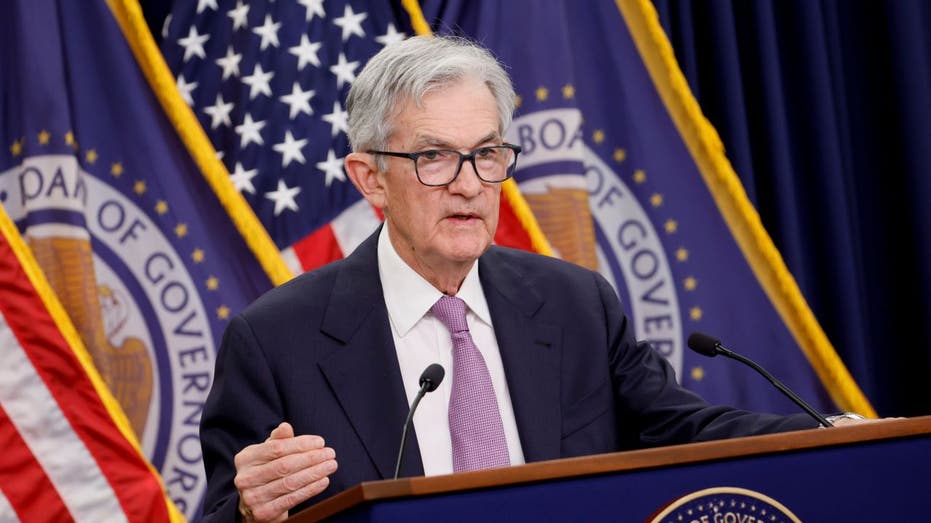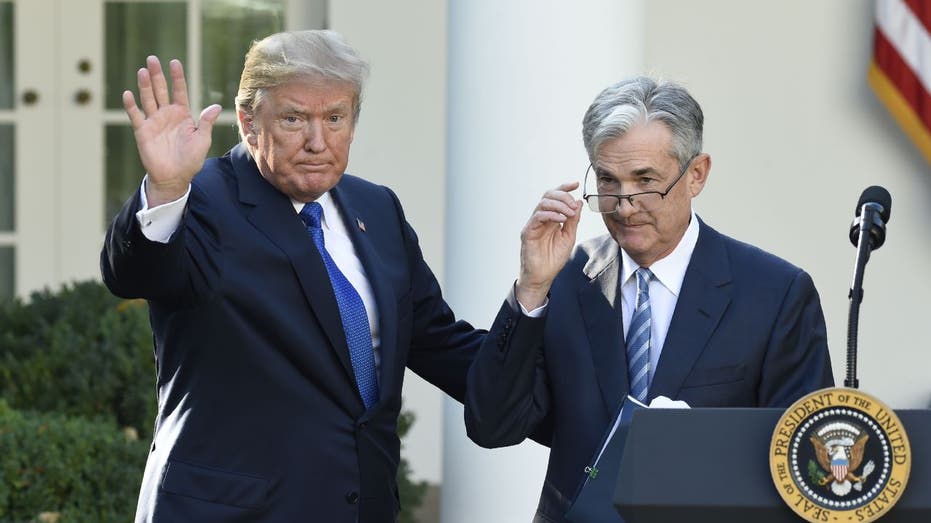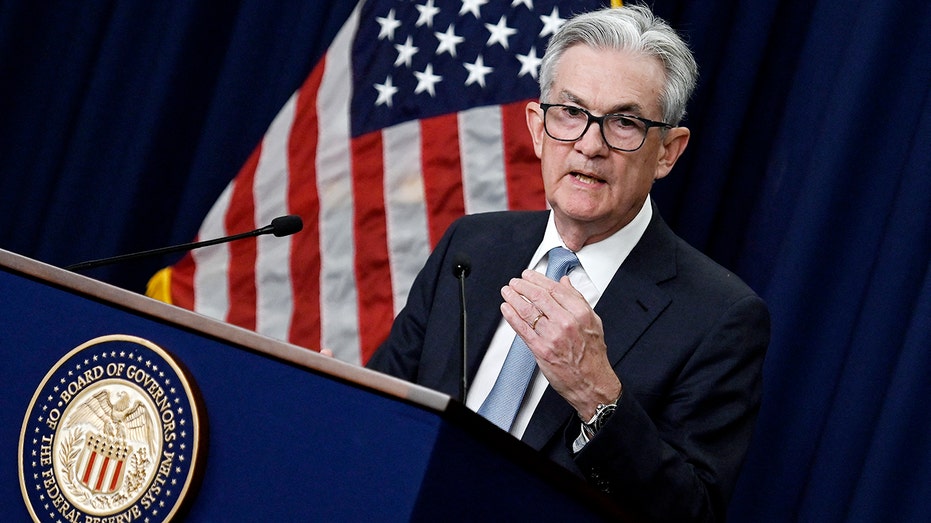Federal Reserve Chair Jerome Powell said Thursday that he will remain in his role through the duration of his term even if incoming President-elect Trump decides to call for his resignation.
The Fed announced a 25 basis point interest rate cut and during the press conference following the central bank’s announcement, Powell was pressed on whether he would resign from his role if Trump pressured him to do so.
“No,” Powell said in response. A follow-up question was posed about whether Powell thinks he would be required to step down in response to such a request and again responded with a succinct, “No.”
Powell was also asked whether he believes the president has the power to fire or demote him and whether the Fed has determined the legality of demoting other Fed governors in leadership positions. “Not permitted under the law,” Powell responded.
TRUMP SUGGESTS PRESIDENTS SHOULD HAVE A SAY ON FEDERAL RESERVE POLICY

Fed Chair Jerome Powell said that he wouldn’t step down if President-elect Trump calls for his resignation. (Ting Shen/Bloomberg via Getty Images / Getty Images)
President-elect Trump has criticized Powell and the Fed over some of its policy moves in recent years and during his first term in office, threatening to fire him and calling him a “bonehead.”
In an interview on FOX Business Network’s “Mornings with Maria” in February, Trump said of Powell, “I think he’s political. I think he’s going to do something to probably help the Democrats, I think, if he lowers interest rates.”
Trump went on to warn about the potential for a resurgence of “massive inflation” because the conflict in the Middle East “could drive up the price of energy” and that Powell is “not going to be able to do anything. But it looks to me like he’s trying to lower interest rates for the sake of maybe getting people elected.”
TRUMP SAYS HE WOULDN’T REAPPOINT FED CHAIR POWELL: ‘HE’S POLITICAL’

Then-President Trump named Jerome Powell as the chair of the Federal Reserve in 2017. He was confirmed to the role in 2018. (SAUL LOEB/AFP via Getty Images / Getty Images)
Trump also said that he wouldn’t reappoint Powell and explained, “He did miss [on inflation], he did miss… I would have a couple of choices. I can’t tell you now.”
In June, Trump said in an interview that he wouldn’t fire Powell if he were to win the 2024 election and would allow him to serve out his term. “I would let him serve it out, especially if I thought he was doing the right thing,” Trump told Bloomberg News at the time.
Powell’s term as the chair of the Federal Reserve ends in May 2026, while his position on the Fed’s Board of Governors continues until 2028.
TRUMP SAYS HE WOULD ALLOW FED CHAIR POWELL TO FINISH HIS TERM IF RE-ELECTED

Powell’s term as Fed chair runs to May 2026, while his term on the Board of Governors continues into 2028. (Photo by OLIVIER DOULIERY/AFP via Getty Images / Getty Images)
He also said that the Fed shouldn’t move ahead with what was then a widely anticipated interest rate cut in September, adding, “It’s something that they know they shouldn’t be doing.”
Trump said in August that he thinks the president “should have at least [a] say in there,” regarding the Fed’s interest rate decisions. “I think that in my case, I made a lot of money, I was very successful, and I think I have a better instinct than in many cases, people that would be on the Federal Reserve or the chairman.”
He also criticized the Fed at the time for getting “it wrong a lot,” and Powell for being a “little bit too early and a little bit too late” in moving interest rates.
GET FOX BUSINESS ON THE GO BY CLICKING HERE
The Fed ultimately went ahead with the September interest rate cut, lowering the benchmark federal funds rate by a larger-than-usual 50 basis points from a range of 5.25% to 5.5%, the highest level since 2001, to a new range of 4.75% to 5% amid progress in returning inflation to the Fed’s 2% target rate. This week’s reduction makes it 75 basis points in this rate-cutting cycle, as the benchmark rate will now sit at 4.5% to 4.75%.
Powell has served as the Fed chair since Feb. 2018, when he was nominated for the role by then-President Trump. President Biden renominated him to the role early in his term.
He first became a member of the Fed’s Board of Governors in May 2012 after being nominated by President Obama.





